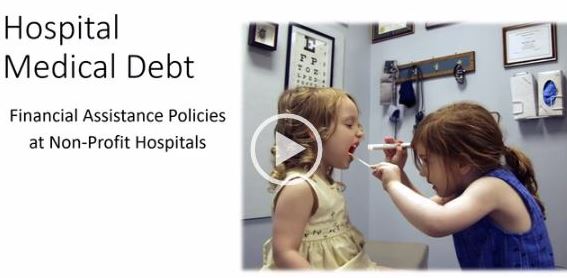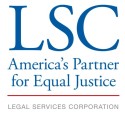What LASO Learned – Expunging A Criminal Record
Executive Summary
Oklahoma has high very rates of incarceration compared to other states. Individuals with criminal records feel the impact of their legal entanglements long after their time has been served. Oklahomans with misdemeanors or felonies may have a harder time obtaining education, housing and employment. Even individuals whose arrests were never prosecuted, or were found not guilty, can face ongoing problems because of their arrest records. Governor Fallin has said of felons, “the ability to gain employment is a critical and necessary component in reducing recidivism and for those individuals to lead productive and successful lives.” Legal Aid Services of Oklahoma has introduced a new, online program to help people expunge criminal records, if they meet the legal requirements. This new technological innovation helps users understand their criminal backgrounds and work with pro bono attorneys for the sealing of some criminal records. This program is designed to improve access to expungements and thereby enhance the housing, education and employment opportunities for many low-income Oklahomans. Legal Services Corporation generously funded this program; Pro Bono Net was the technological partner.
Introduction
Oklahomans are more likely to have criminal records than citizens of other states. The National Institute of Corrections reports “Oklahoma (2014) has a rate about 79% higher than the national average of incarcerated (in prison) adults per 100,000 people.”[1] Legal Aid Services of Oklahoma (LASO) has observed that many Oklahomans with criminal records have trouble finding or maintaining a job, experience difficultly obtaining housing, and find their records to be a barrier to accessing education. That is, long after criminal records have been addressed by the legal system, they continue to exact a financial punishment on those who have served their time.
After individuals have completed the legal process related to their criminal charge, and if they meet a variety of stringent legal factors, Oklahomans are eligible by law to have their records erased—also called “expunged.” Generally speaking, individuals with violent felonies or multiple convictions are not eligible for expungements. Individuals with a misdemeanor or non-violent felony conviction, at least 10 years old without any additional charges, are generally eligible. When individuals have been found not guilty, or when their cases have been dismissed or dropped, records are generally expungable.
Legal Aid Services of Oklahoma and Pro Bono Net (probono.net), generously funded by the Legal Services Corporation (LSC; lsc.gov), have developed online technologies to guide Oklahomans with criminal records through the expungement process. Users can prepare their legal documents and connect with pro bono attorneys through a secure online portal. This limited scope legal service has the potential to help more Oklahomans, particularly in rural areas, have access to expungement.
Expungement seekers can visit Legal Aid’s website (oklaw.org) to access the online expungement program. This program uses guided imagery to help Oklahomans understand the context of their criminal record and the process of expunging it. The innovative technology not only makes simple work of beginning the expungement process for users, but also connects attorneys to self-represented litigants securely online. The result is a streamlined expungement process for both self-represented litigants and the pro bono attorneys who will assist them.
Approach
Legal Aid Services of Oklahoma has harnessed the potential of technology to help Oklahomans who have criminal records access information about expungements, and guide them through the legal process of sealing their records. Considering that 1 in 12 Oklahomans is estimated to have a felony[2], there are more Oklahomans who have criminal records than could realistically be served by the lean, non-profit LASO staff. This project allows expungement seekers to represent themselves in court, and to be assisted by pro bono attorneys. A savvy technological system allows self-represented litigants the opportunity to provide pro bono attorneys with the appropriate legal information they need to give legal guidance. The result is an efficient process for expungement seekers, pro bono attorneys, and LASO staff. The other beneficiary: the courts. Self-represented litigants will enter the courtroom with the appropriate legal documents and preparation, which has the potential to reduce legal inefficiencies in the courts.
Results
Legal Services Corporation is the single largest funder of civil legal aid for low-income Americans in the nation. LSC has funded this project to help those with criminal records participate in the expungement process. We expect this technology to make it easier for pro bono attorneys to streamline their workflow and consult with more clients, which will improve efficiencies. This process will also likely improve efficiencies throughout the expungement legal process, from the Oklahoma State Bureau of Investigations to the Courts.
This grant from Legal Services Corporation allowed LASO and its partners to create a new technological functionality that can be helpful to Legal Aid offices statewide and other LSC grantees. We expect that this new technology will be applied to other legal problems that face low-income Oklahomans.
Implications
Oklahoma’s Governor Mary Fallin signed an executive order on February 24, 2016 to require state agencies to remove questions about felony convictions on state job applications. Governor Fallin said, “Employment after a felony conviction is always a challenge, but the ability to gain employment is a critical and necessary component in reducing recidivism and for those individuals to lead productive and successful lives…Thus, we should remove unnecessary barriers to employment opportunities for Oklahomans with felony convictions.”[3] Given that “One in 12 Oklahomans is a convicted felon, with more than 55,000 people currently in prison or under supervision of the Oklahoma Department of Corrections, most for nonviolent offenses,”[4] Fallin’s order could have significant benefits for employment and recidivism rates. Similarly, LASO’s expungement program may also positively influence employment and recidivism rates, complementing Ms. Fallin’s executive order. LASO’s expungement project, supported by the Legal Services Corporation, can help those who have put their legal problems behind them to fully reengage in society in ways that are meaningful and productive.
###
Contact Information:
Margaret Hamlett Shinn
918-295-9439
margaret.hamlett@laok.org
[1] http://nicic.gov/statestats/?st=OK
[2] http://newsok.com/article/5480920
[3] http://services.ok.gov/triton/modules/newsroom/newsroom_article.php?id=223&article_id=18804
[4] http://newsok.com/article/5480920
















